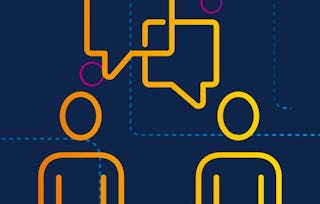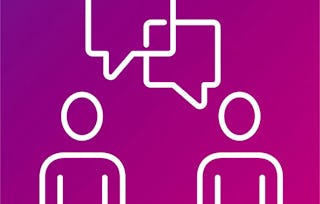This course will introduce you to participatory approaches to public health. You will learn about the history of participatory health research and why it is essential to solving contemporary public health challenges. The course will help you to understand the social and cultural context of public health, before introducing you to essential concepts for working with communities: knowledge and power. Finally, you will engage with critical analyses of participatory approaches, to help you to determine if and when such strategies are appropriate. Throughout the course you will analyse real-world case studies of community-based health projects, including historical HIV social movements, public health projects with sex workers, and participatory approaches to the COVID-19 pandemic. The course will equip you to practice public health in partnership with local communities. It is followed by a second course, Applying Participatory Approaches in Public Health Settings, which builds upon the theoretical foundations of this introductory course.

Introduction to Participatory Approaches in Public Health
6 days left! Gain next-level skills with Coursera Plus for $199 (regularly $399). Save now.

Introduction to Participatory Approaches in Public Health
This course is part of Participatory Approaches in Public Health Specialization

Instructor: Helen Ward
2,759 already enrolled
Included with
(12 reviews)
Recommended experience
Skills you'll gain
Details to know

Add to your LinkedIn profile
See how employees at top companies are mastering in-demand skills

Build your subject-matter expertise
- Learn new concepts from industry experts
- Gain a foundational understanding of a subject or tool
- Develop job-relevant skills with hands-on projects
- Earn a shareable career certificate

There are 4 modules in this course
This week you will be introduced to participatory approaches to public health. What are they? Where do they come from? And why are they essential to solving contemporary public health challenges? Firstly, you will meet the team and get an idea of how this course is structured. We also want you to share your own experiences with other learners - in this way, you'll identify what you already know about participatory approaches, share useful insights and make connections with one another. In Lesson 1 you'll learn the key principles and characteristics of a participatory approach and learn about the history of participation in HIV social movements. In Lesson 2, you'll focus on the case study of Ebola, to explore how participatory approaches can be used in pandemics. Take note - we'll be returning to this discussion in Week 4 to see what lessons from Ebola can be applied to COVID-19.
What's included
6 videos8 readings3 discussion prompts3 plugins
This week will help you to understand the social and cultural context of public health. In Lesson 1, you will think about how to understand culture and society and their relationship with health, drawing upon readings from anthropology and sociology. You will then apply that thinking to the importance of culture for participatory public health. You will read and analyse studies in Malaysia and London, before hearing an interview with a researcher about how culture affects participation in health research Singapore. In Lesson 2, you will explore some of these concepts further through an in-depth case study of participatory projects with sex workers.
What's included
3 videos4 readings1 assignment1 discussion prompt1 plugin
Welcome to Week 3. In Lesson 1, you will reflect further on what it means to create knowledge in a participatory way. You will learn about different epistemological approaches to knowledge creation, before doing an exercise exploring your own positionality in the social field. In Lesson 2, you will study the case of Participatory Action Research (PAR), as a way of introducing you to the concepts of action and power. You will watch a video introducing you to PAR, before undertaking readings and activities to explore these in more depth. This will help you to think about the forms of action you could take to help improve the health and well-being of the communities you work with.
What's included
2 videos5 readings1 discussion prompt1 plugin
In Week 4, you will take a step back and place participation in context. In Lesson 1, you will be introduced to some ways of thinking about and evaluating participation, including some of the popular typologies of participation. You will start to consider if participatory approaches are always a good thing, and some of the dangers participation might pose. In Lesson 2, you will explore how participatory approaches could be used to tackle the COVID-19 global pandemic.
What's included
4 videos5 readings1 peer review2 discussion prompts
Earn a career certificate
Add this credential to your LinkedIn profile, resume, or CV. Share it on social media and in your performance review.
Instructor

Offered by
Explore more from Public Health
 Status: Free Trial
Status: Free TrialImperial College London
 Status: Free Trial
Status: Free TrialImperial College London
 Status: Free Trial
Status: Free TrialImperial College London
 Status: Free Trial
Status: Free TrialJohns Hopkins University
Why people choose Coursera for their career

Felipe M.

Jennifer J.

Larry W.

Chaitanya A.

Open new doors with Coursera Plus
Unlimited access to 10,000+ world-class courses, hands-on projects, and job-ready certificate programs - all included in your subscription
Advance your career with an online degree
Earn a degree from world-class universities - 100% online
Join over 3,400 global companies that choose Coursera for Business
Upskill your employees to excel in the digital economy
Frequently asked questions
To access the course materials, assignments and to earn a Certificate, you will need to purchase the Certificate experience when you enroll in a course. You can try a Free Trial instead, or apply for Financial Aid. The course may offer 'Full Course, No Certificate' instead. This option lets you see all course materials, submit required assessments, and get a final grade. This also means that you will not be able to purchase a Certificate experience.
When you enroll in the course, you get access to all of the courses in the Specialization, and you earn a certificate when you complete the work. Your electronic Certificate will be added to your Accomplishments page - from there, you can print your Certificate or add it to your LinkedIn profile.
Yes. In select learning programs, you can apply for financial aid or a scholarship if you can’t afford the enrollment fee. If fin aid or scholarship is available for your learning program selection, you’ll find a link to apply on the description page.
More questions
Financial aid available,
¹ Some assignments in this course are AI-graded. For these assignments, your data will be used in accordance with Coursera's Privacy Notice.

